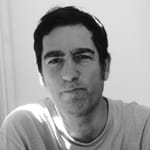In our conventional experience, we draw a line at the skin. We treat the body as the boundary of the self. The "inner" is the private, subjective space of the mind: our thoughts, emotions, and psychological narratives. The "outer" is everything else: the world of nature, other people, the sky—all that exists beyond our physical form.
But what if this perception is completely reversed?
What if the debt we owe to clarity can only be settled by seeing reality through a mirror held up to this illusion?
You are real. Anything that is genuinely real is not separate from you; it is part of you, one with you. This real field includes the unmediated presence of nature, the suchness of a tree, the vastness of the sky. This is the true "inner."
Conversely, what we typically call the "inner world"—the mind—is actually the "outer." It is a projected space, a virtual field of imagination. It is outside the real, a commentary about the real, but not the real itself.
Does this not bring a profound clarity to observation? And does it not reveal that the traditional viewpoint of inner and outer is itself a construct, established by the very mind—the very "outer space" it seeks to define? The mind, which is invented from the real, then invents a world of separation.
So, the mirror is the field itself.
There are two fields:
- The Field of the Real: That which is untouched by thought, because it is prior to it. It is the is-ness of existence, unaltered by ideas, opinions, beliefs, or any form of mental manipulation. You cannot add to it or subtract from it. It simply is.
- The Field of the Imagined: This has nothing to do with the real. It is invented, projected, and made up by the mind. It is a ripple upon the surface of the real, mistaken for the depths.
If you identify as a mind, then of course the mind seems inner, and everything it perceives seems outer. This is the perspective of the division itself.
But if you rest without splitting experience into inner and outer—if you settle into the field of the real—a fundamental shift occurs. You realize you are not a separate observer of the real; you are the real, and it is you. You are an expression of nature, of space, inseparable from it.
That is the true inner. It is the field of the real.
And the "outer" is now seen for what it is: anything projected from that reality into a virtual, secondary field—the field of imagination, psyche, and thought. It is, in fact, outside the field of the real, a phantom territory we have mistaken for home.




